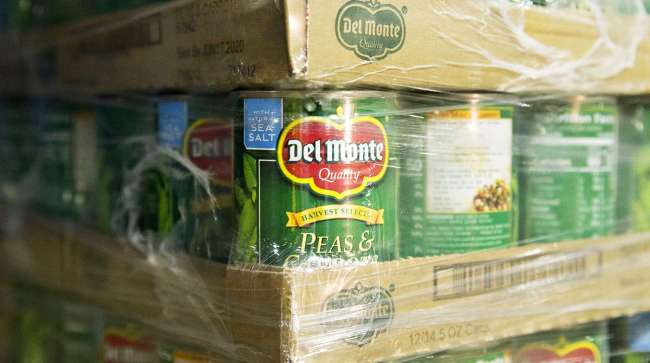Del Monte executed a debt overhaul last year. (Daniel Acker/Bloomberg)
Canned food company Del Monte Foods filed for bankruptcy, less than a year after executing a controversial debt restructuring.
The company entered into a lender-backed restructuring support agreement that calls for the food producer to sell its assets in bankruptcy court. Del Monte has lined up financing to fund its Chapter 11 case, giving the firm $165 million in fresh cash in exchange for added protection for hundreds of millions of dollars in existing debt.
The company sought court protection in New Jersey, saying it’s carrying roughly $1.245 billion in secured debt. Del Monte blamed its Chapter 11 filing on multiple factors, including a costly buildup of excess inventory resulting from elevated demand during the COVID-19 pandemic and significant debt that has become more expensive as a result of rising interest rates.
The bankruptcy filing is the latest turn in a challenging year for the borrower that saw its parent company Del Monte Pacific Ltd. in June elect to skip a payment to the unit’s lenders as part of a lawsuit settlement tied to its restructuring last year.
Del Monte in a July 1 court filing said transportation companies are among the list of unsecured creditors. Uber Freight and Saddle Creek Logistics are owed $9.1 million and $1.4 million, respectively.
Uber Freight ranks No. 14 on the Transport Topics Top 100 list of the largest logistics companies in North America. Saddle Creek ranks No. 66.
Del Monte in the filing said it has carried substantial debt since it was acquired by DMPL from a group of funds led by KKR. The acquisition by DMPL, which is publicly listed on the Singapore Stock Exchange, was funded by debt that was put on Del Monte’s balance sheet, the company’s Chief Restructuring Officer Jonathan Goulding said in the court filing.
The firm’s cash interest expense increased from $66 million in 2020 to $125 million in the 2025 fiscal year, Goulding said. The interest expense “materially exceeds” Del Monte’s current projected earnings before interest, taxes, depreciation and amortization and constrained its liquidity, he said.
Del Monte Foods in its statement said the restructuring support agreement contemplates the company undertaking a going-concern sale process for all or substantially all of its assets. Financing along with cash from ongoing operations is expected to provide sufficient liquidity during the sale process and fund ongoing operations, as it intends to keep serving customers, according to the statement.
The company executed a debt overhaul last year, which became the subject of a lawsuit by left-behind lenders, who said Del Monte Foods defaulted on a $725 million financing agreement when it shifted the assets away from the reach of lenders.
The strategy — known in industry parlance as a drop-down transaction — allowed Del Monte Foods to raise fresh liquidity by borrowing against the transferred assets. The deal also prioritized participating lenders via debt swaps and created different payment priorities, Bloomberg reported.






